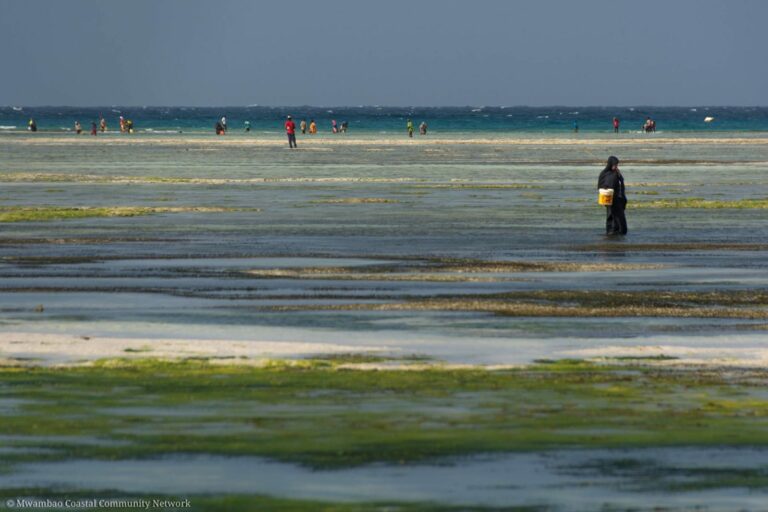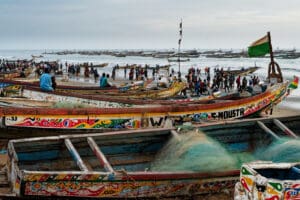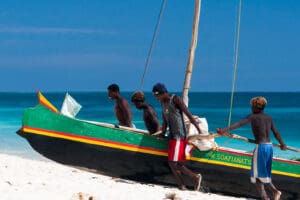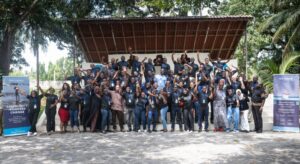The community of Ndooni village on Fundo Island in Pemba, Zanzibar, has witnessed a massive return on investment thanks to its new locally led fisheries management regime – the introduction of temporary octopus fishery closures.
With support from Tanzanian organisation MWAMBAO, the community initially closed its octopus fishery for three months last year to allow the stock to recover. The fishery reopened in December, and local fishermen and women were rewarded for their patience with a huge increase in catches. The opening day saw more than a 20-fold jump in typical daily landings.
Later in December, inspired by the success of its first closure, the community decided to reclose the fishery for a further three months. With support from the Indian Ocean Commission Biodiversity Project, MWAMBAO has helped the community to repeat the feat with impressive results.
The first day of fishing following this second closure yielded 361 kg of octopus, similar to the 400 kg harvested after the December reopening (despite extreme weather conditions). For context, the daily catch rate before these closures was just 10–20 kg/day.
Mwambao supported communities to establish these fishery closures to combat recent fishery declines along Tanzania’s coasts: before the closure the average weight of a caught octopus was 360 g – far below the size of maturity for reef octopus. But on opening day the majority of animals caught were between 1 and 3 kg; indicating a far healthier stock, and more sustainable fishery. The fast growth rate of reef octopus is one of the key factors behind the success of this approach to fisheries management.
After fishing the area for a few days, the community has decided to reclose the fishing site straight away for another three months. The community hopes that closing the area again will lead to even larger catches the next time the fishery opens – a phenomenon that Mwambao are investigating through catch monitoring.
Blue Ventures is proud to support MWAMBAO in its work promoting local fisheries management in Tanzania. The Ndooni community’s achievements bode well for the future of marine resource management in Pemba. If local fisheries management can be sustained, this approach is likely to yield long term benefits, ultimately safeguarding traditional fishing livelihoods and threatened marine biodiversity.
Contact: Rupert Quinlan, Outreach Director
Find out more about our supporting partners approach
Cover image: Mwambao Coastal Community Network


















